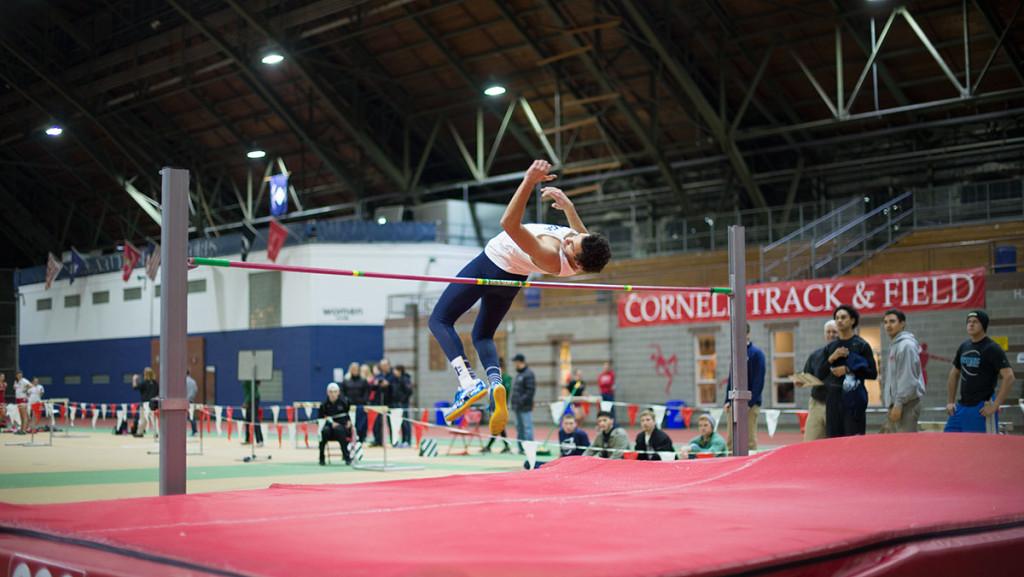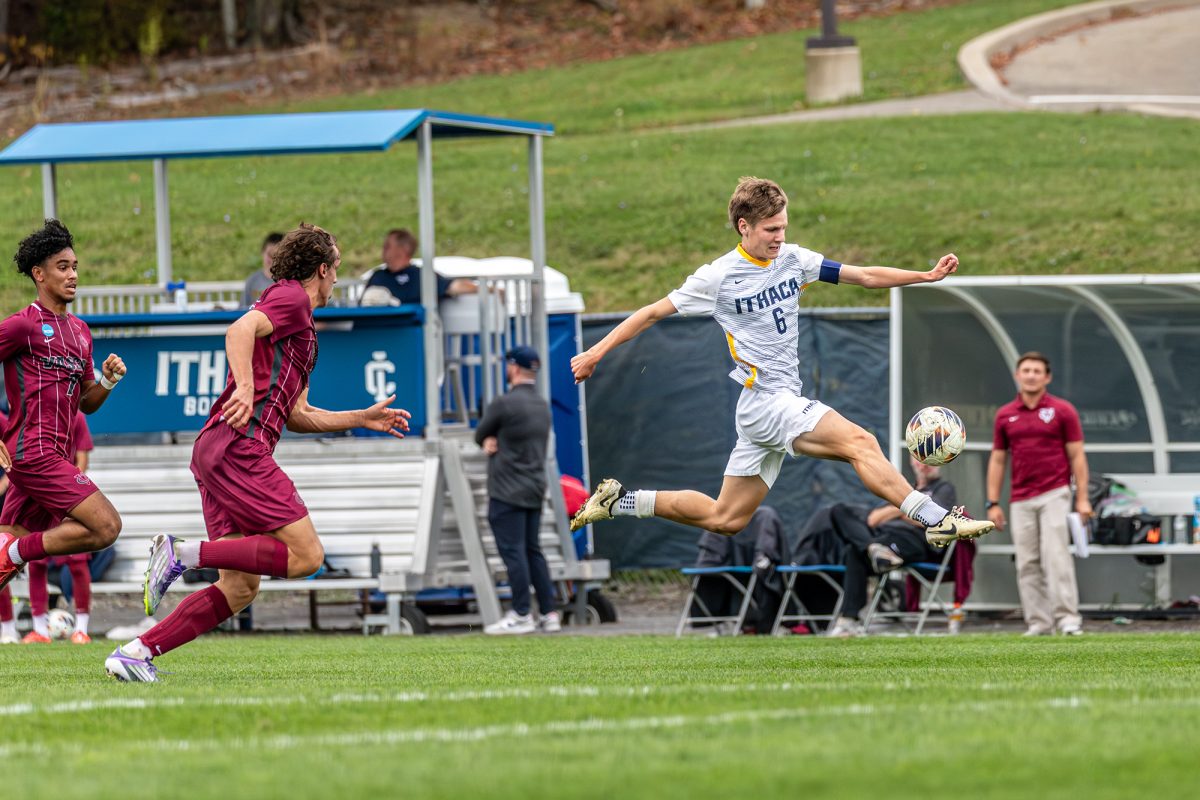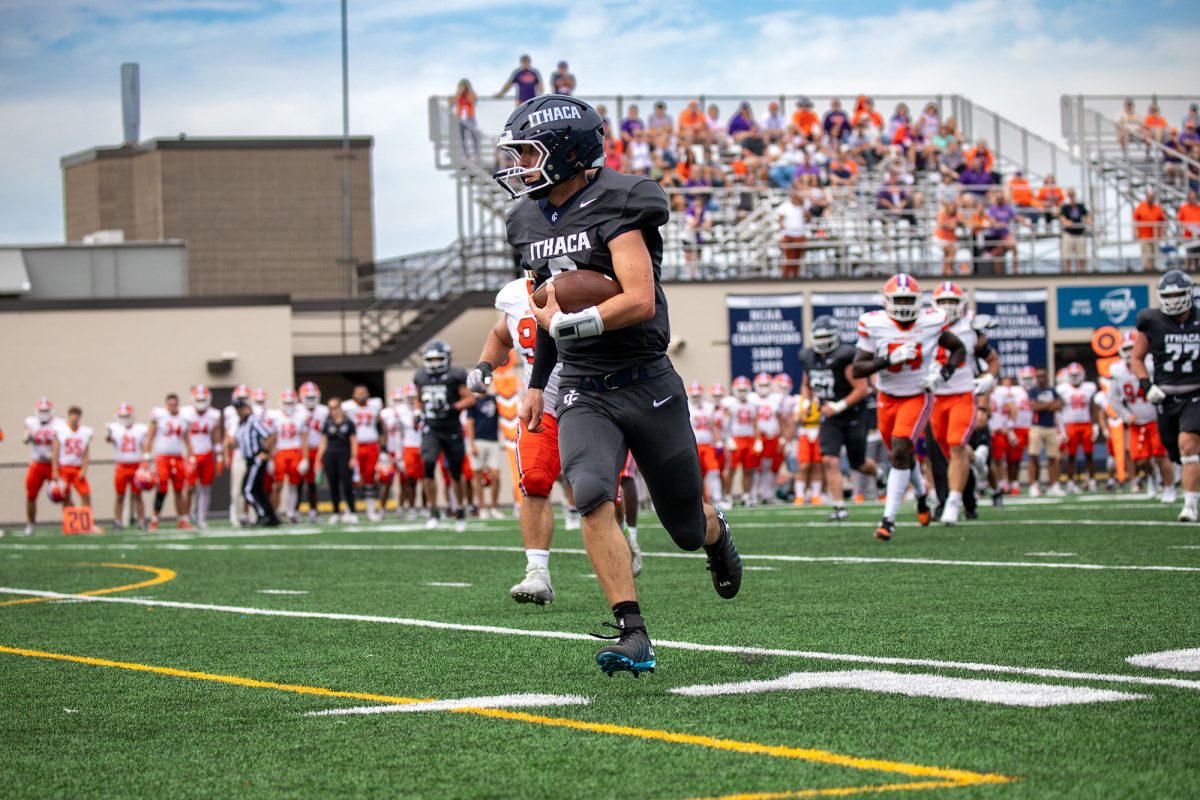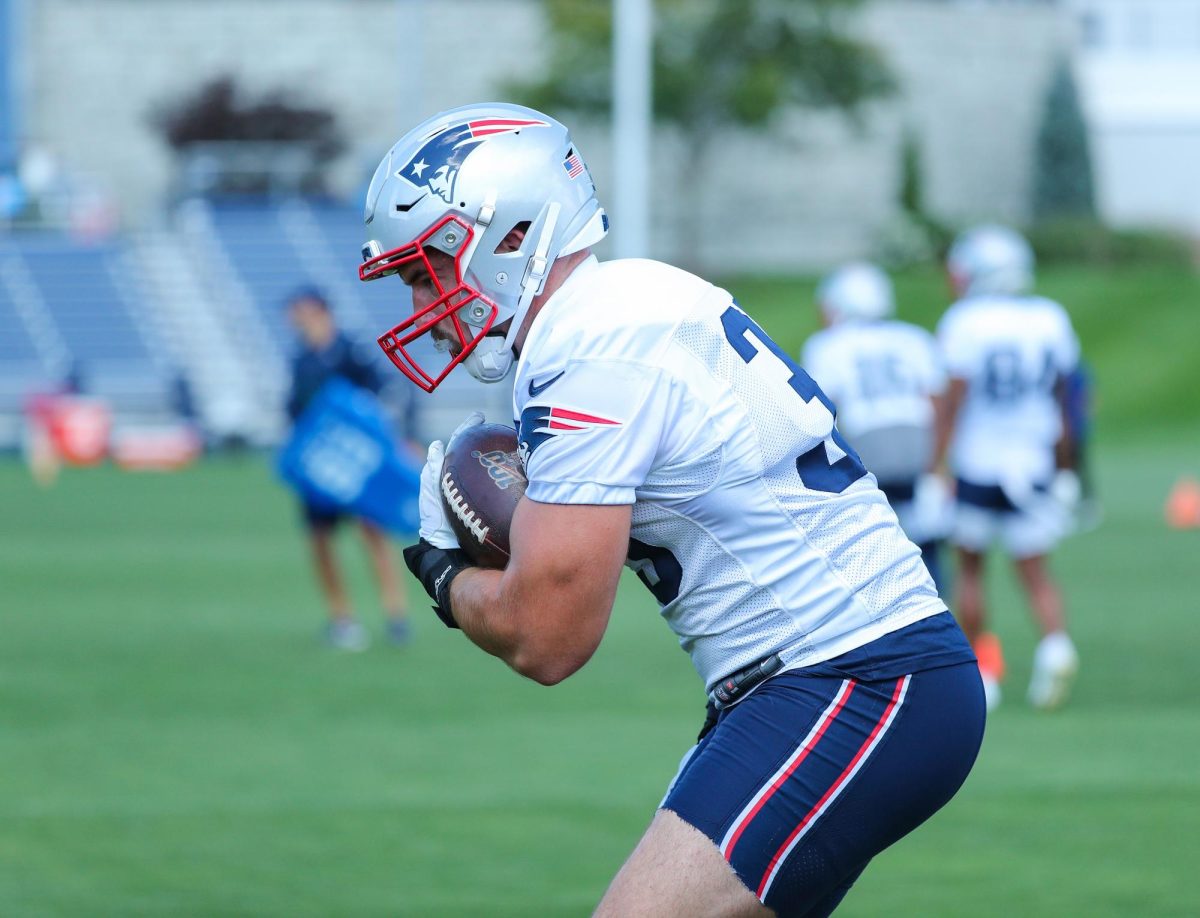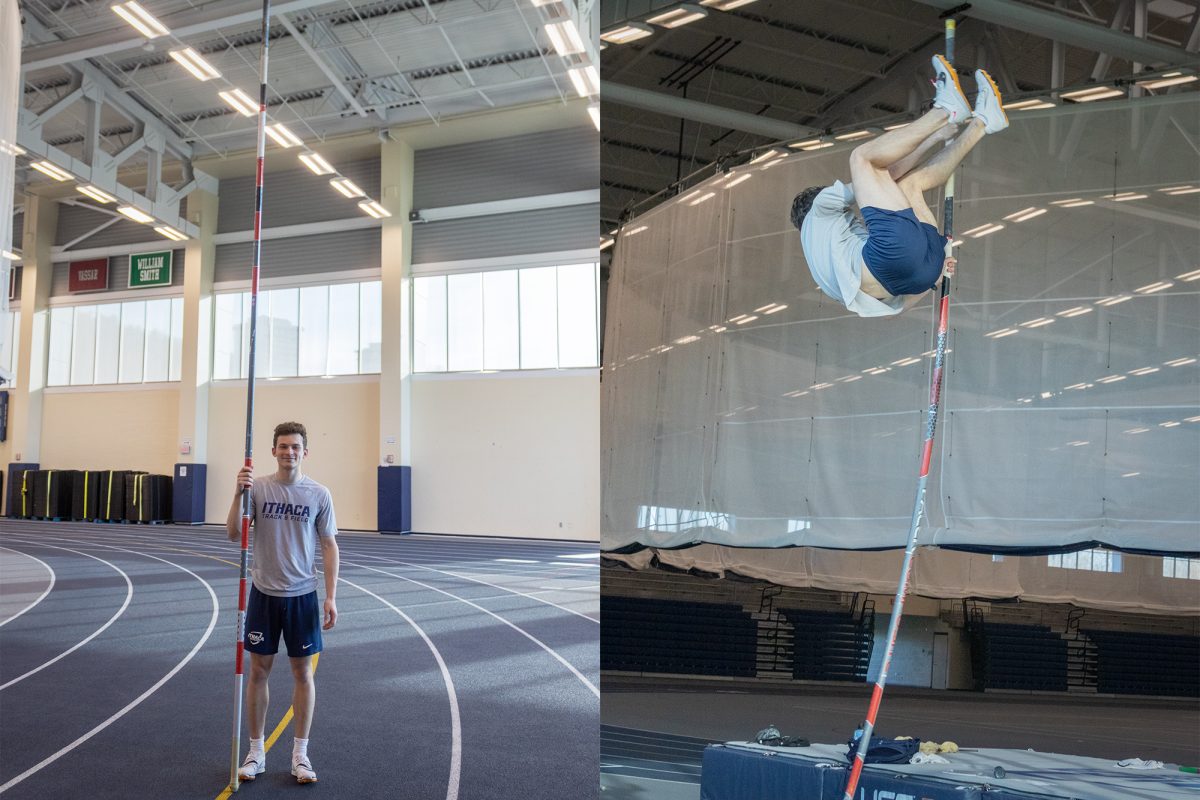Imagine spending years perfecting a sport and countless hours deciphering the recruiting process only to discover, upon arrival at college, that you’d be changing events entirely. For many athletes, the process of switching would seem intimidating and unfamiliar. However, if there’s one thing that has proven true for four men’s track and field athletes, it’s that adversity can be embraced and, more importantly, overcome.
Freshman Seth Abbott and sophomores Tyler Denn-Thiele, Andrew Ward and Thomas Battistelli are all members of the men’s track and field team, but there is something that connects them even further.
All four are multi-athletes, which means they compete in the heptathlon — a grueling, seven-part event that includes a 60-meter dash, shot-put toss, long jump, high jump, pole vault, 60-meter hurdles and a 1,000-meter dash. However, the athletes weren’t always multi-eventers. Upon their arrival at Ithaca College, Abbott, Denn-Thiele, Battistelli and Ward switched from their respective events to multis.
The switch came about as a result from a decision made by a combination of the athletes and head coach Jim Nichols. Ward said while Nichols selects and encourages the most qualified and most versatile athletes, he doesn’t force anyone to make the change.
“He picks people who are pretty versatile and early in their college career,” Ward said. “He says, ‘I can’t want it more than you.’ Usually he will sit you down and ask how you would feel about it.”
For Denn-Thiele, who spent his four years in high school strictly as a pole vaulter, the original thought of switching events was far from intimidating.
“Initially, I was excited to learn new events,” Denn-Thiele said. “I thought I would be able to pick up all of them quickly and swiftly. I soon learned that the task I decided to undertake was harder than I originally thought. Learning many new events meant longer practices, yet less time to learn each event.”
However, as quickly as the athletes switched events, they also discovered just as quickly how difficult and frustrating being a multi-eventer is. Ward said the transition was incredibly tough, especially since the Bombers compete in several Division I meets against higher-caliber athletes throughout the season.
“I’ve known what I was doing on a track since I was 15, and suddenly, I had five new events to learn in a month,” Ward said. “Trying to learn new stuff at age 19, when you’re competing with Division I athletes is pretty awful.”
The process of switching events was, by no means, an easy one, Ward said. Each event on the team practices separately, and Ward said the multi-athletes attend all of the practices and sometimes work out three to four times per day. Normal track practice runs from 4–6 p.m., but the heptathletes often practice from 3–7 p.m. to keep up with their events. Ward said he has learned the importance of consistency and taking advantage of his strengths.
“We did less focus on being fit and more focus on learning new things. It’s a lot of trial and error,” Ward said. “Coach says you need to keep practicing everything over and over again. It was a lot of frustrating hours of just, ‘keep trying, keep trying, keep trying.’ At a certain point, coach finally said it was time to be athletic and do it.”
And that’s exactly what these men have done. For Ward and Denn-Thiele, progress has been evident over the past two years in their time as Bombers. Ward’s progress has been especially clear within the past two weeks, when he set personal records in six of the seven heptathlon events he competed in at the Bomber Invitational on Feb. 7.
“I have seen great improvements from when I started the multi-event last year,” Denn-Thiele said. “I still have plenty of room to grow. Sometimes, I play the ‘What-If’ game and wonder if I would be a better pole vaulter now, had I been focusing on it all this time, but I realized that by doing the multi-event, I have gotten much stronger and became an overall better athlete.
In his two encounters with the heptathlon, Ward placed sixth at the Cornell Greg Page Relays on Dec. 6, 2014, and seventh at the Bomber Invitational on Jan. 31. Meanwhile, Denn-Thiele placed ninth and sixth at the Cornell Relays and the Upstate Challenge 2015 Indoors on Jan. 24, respectively. Similarly, Abbott placed eighth and fifth in the same meets.
Though the results may not yet be what he has hoped for, in Abbott’s short time as a Bomber, he said he has experienced personal achievements on the track as a multi-eventer.
“In one meet, I was able to pole vault a full meter higher than I had ever done before — which is an insane improvement,” Abbott said. “I think my goals are to keep improving and doing my best. I’m just a freshman, so this is my first year with real coaches, and I’m trying to learn a lot at once, so as long as I keep improving, I’ll be pretty happy.”
While Abbott, Denn-Thiele and Ward all attributed their progress to their coaching staff — which frequently has to work with their academic schedules to fit in all of the practices — they also credited their fellow teammates.
“Coach has been really patient with us and has made a lot of accommodations for us, since we can’t just practice between the hours of 4 and 6 like normal,” Ward said. “It’s also been really nice to have [Denn-Thiele] there because he’s been doing it for a couple of years now. Having someone who knows more than us and who’s been through it before is really helpful.”
A sense of camaraderie seems to be what gets the Bombers through the most mentally challenging parts of their season — including their biggest upcoming challenge: the New York State Collegiate Track Conference Championship, which begins Feb. 27.
With hopes to place first in their events, the heptathletes are working hard every day at practice to be the absolute best they can be for the state meet, while also focusing on keeping themselves healthy and ready to compete. Though their confidence is still building, much like their multi-event skills, Ward said one thing is certain: The Bombers are ready to outwork their competitors and overcome any adversity thrown their way.
“I’ve learned that you need to be really patient,” Ward said. “There’s no use in getting mad after the first event if you have six more to go. I’m learning about myself. I’m learning about what it’s like to be bad at stuff again. It’s a learning process — and I’m definitely still in the learning curve — but I’ve seen progress since the beginning.”


